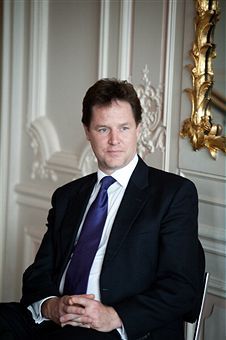 In some ways, Gordon Brown’s absurd speech yesterday evening felt like the crest of a wave. It’s not that the phone hacking scandal has gone away — far from it. But the initial surge of political activity and spite has abated, having achieved many of its immediate goals: the end of the BSkyB bid, a judge-led inquiry, and so on. Now, our politicians are entering the second phase of this crisis, which will be more about the wider picture and less about News International specifically.
In some ways, Gordon Brown’s absurd speech yesterday evening felt like the crest of a wave. It’s not that the phone hacking scandal has gone away — far from it. But the initial surge of political activity and spite has abated, having achieved many of its immediate goals: the end of the BSkyB bid, a judge-led inquiry, and so on. Now, our politicians are entering the second phase of this crisis, which will be more about the wider picture and less about News International specifically.
There was a hint of this in Nick Clegg’s interview with the Today programme earlier, a preview of a speech he is delivering later today. The Lib Dem leader admitted that he sees the phone hacking scandal as an “opportunity” to “clean things up” more generally. But it’s clear that he also regards it as an opportunity to seize back the insurgent’s mantle that his party wore during the election campaign. His emphasis was on, as he put it, “the murky world of the British Establishment.” He added that, “Different bits of the British system — the politicians, the press, the police — became too close to each other, too cosy.”
Whether Clegg will successfully recast himself as the Scourge of the Establishment, I’m not sure. It will certainly be difficult to erase the public memory of that tuition fees pledge, dropped in backroom negotiations on Downing Street. But he did try to force the issue with a few specifics. “We didn’t entirely see eye-to-eye,” he said of David Cameron’s appointment of Andy Coulson. And he urged News International chiefs to appear before backbenchers next week, if they had “any shred of responsibility”. Phase two this may be, but Murdoch and Brooks are still very much in the picture.






Comments